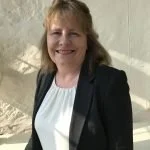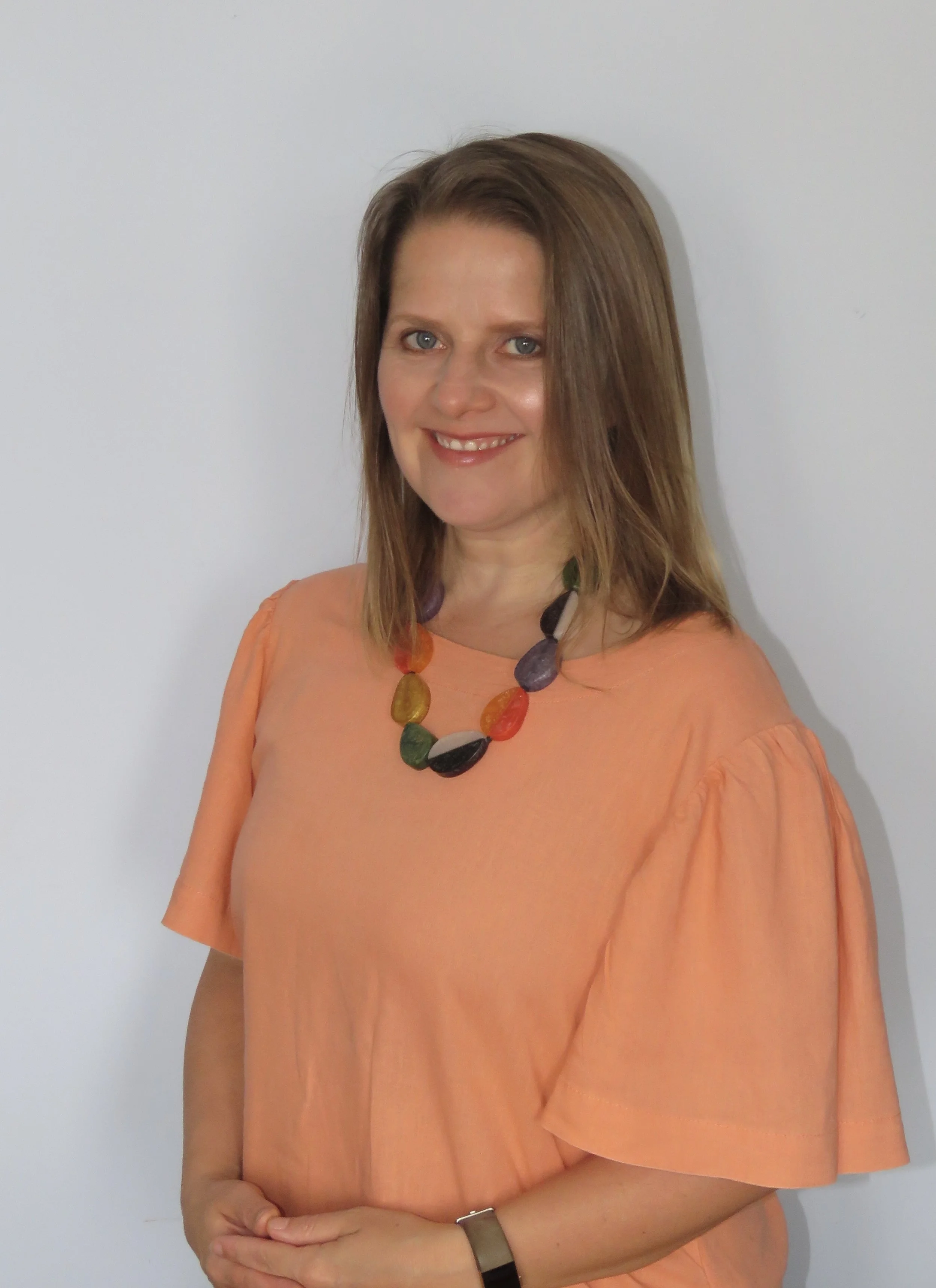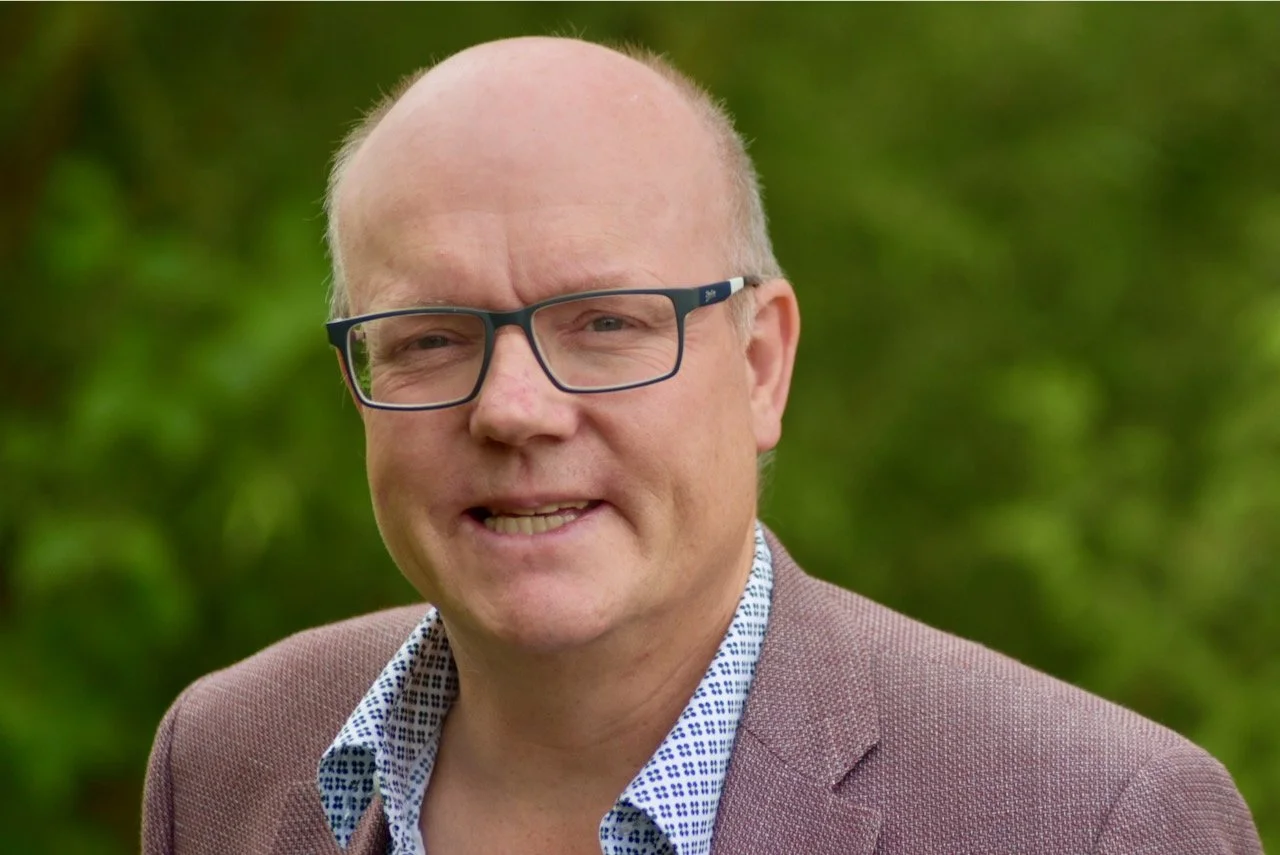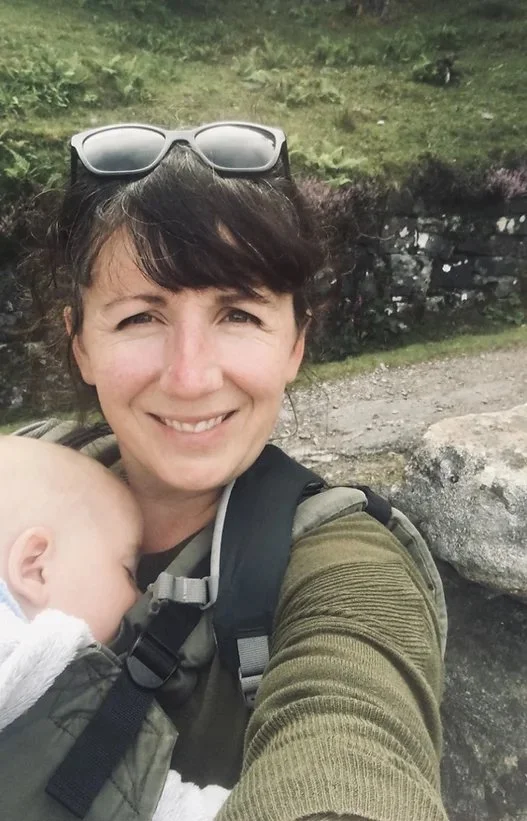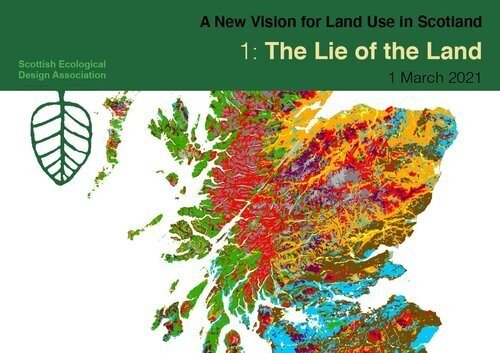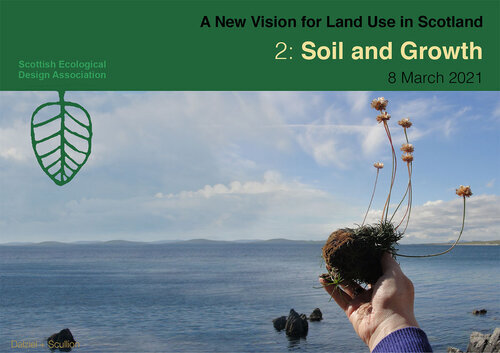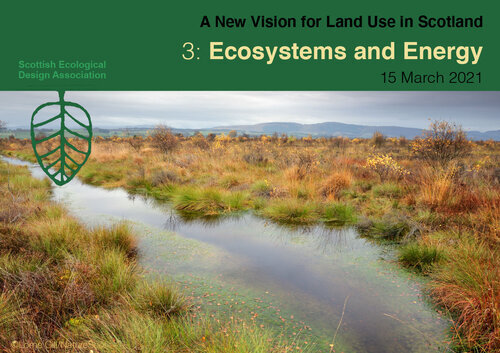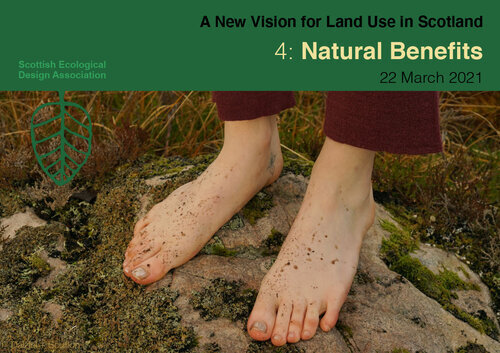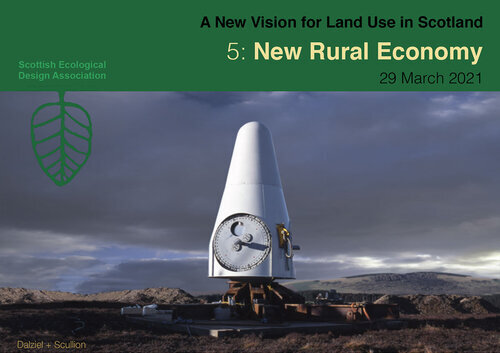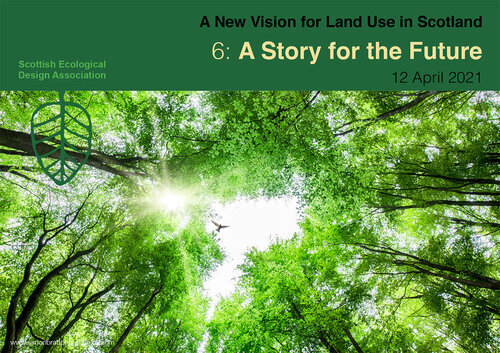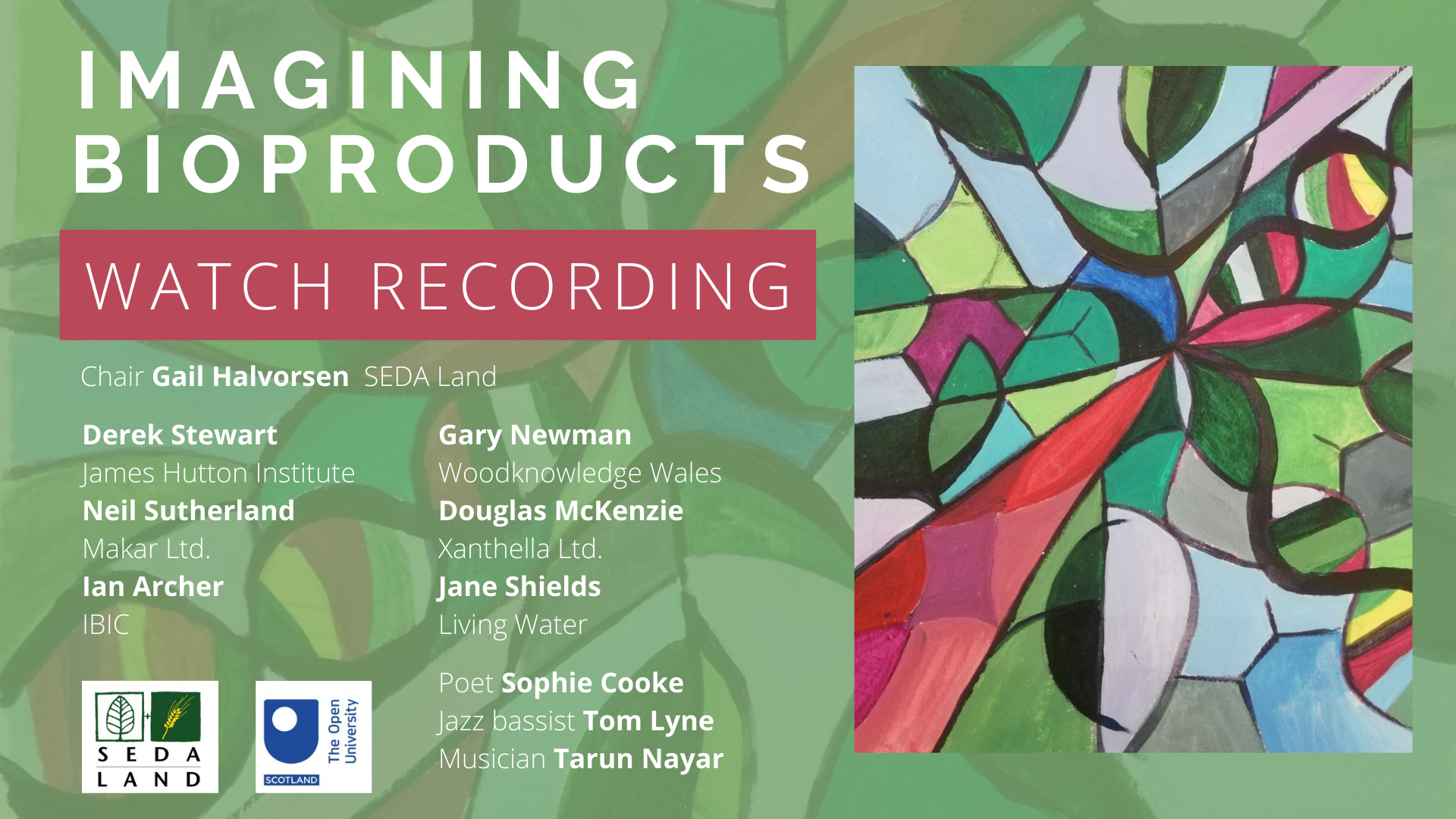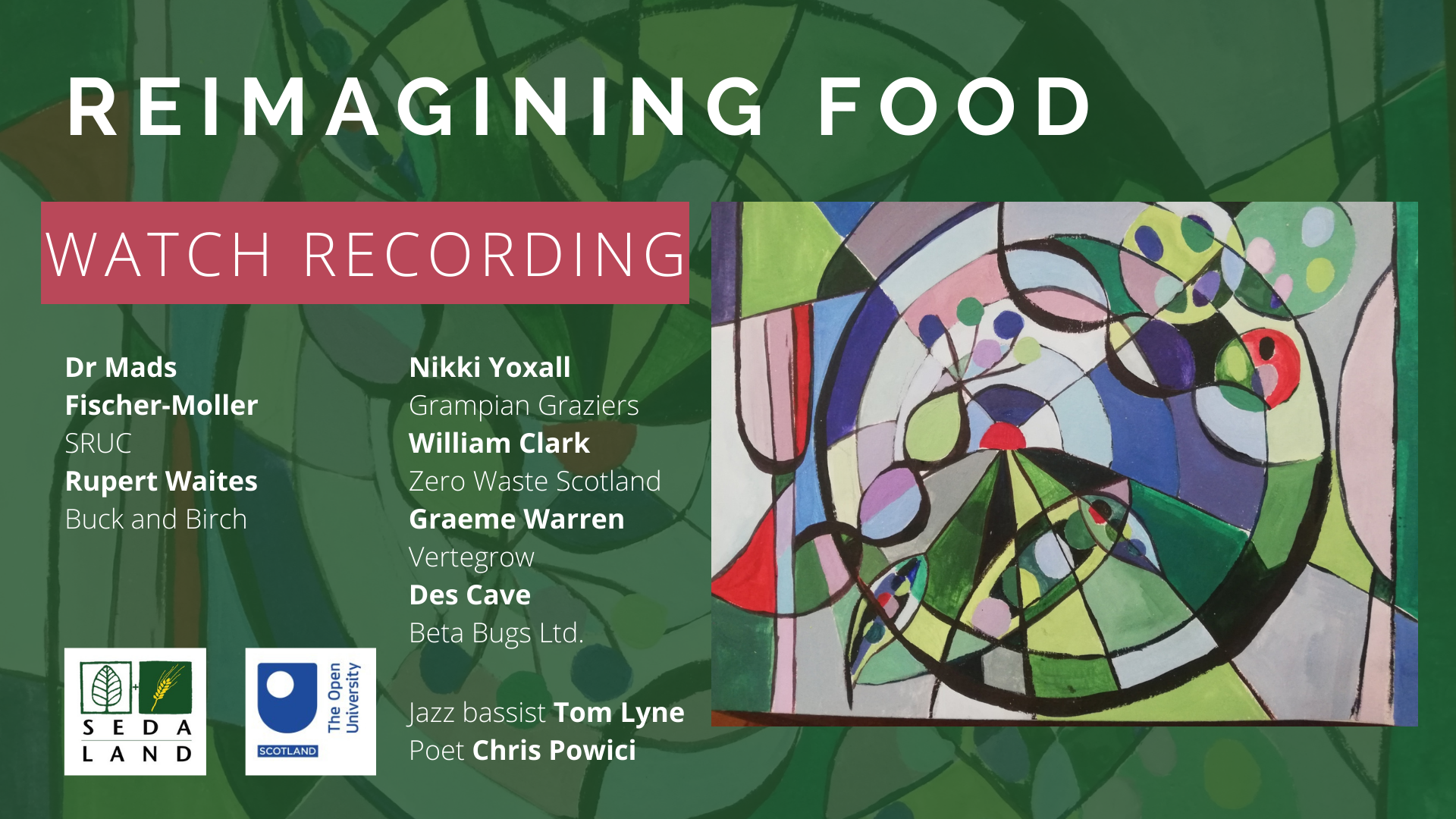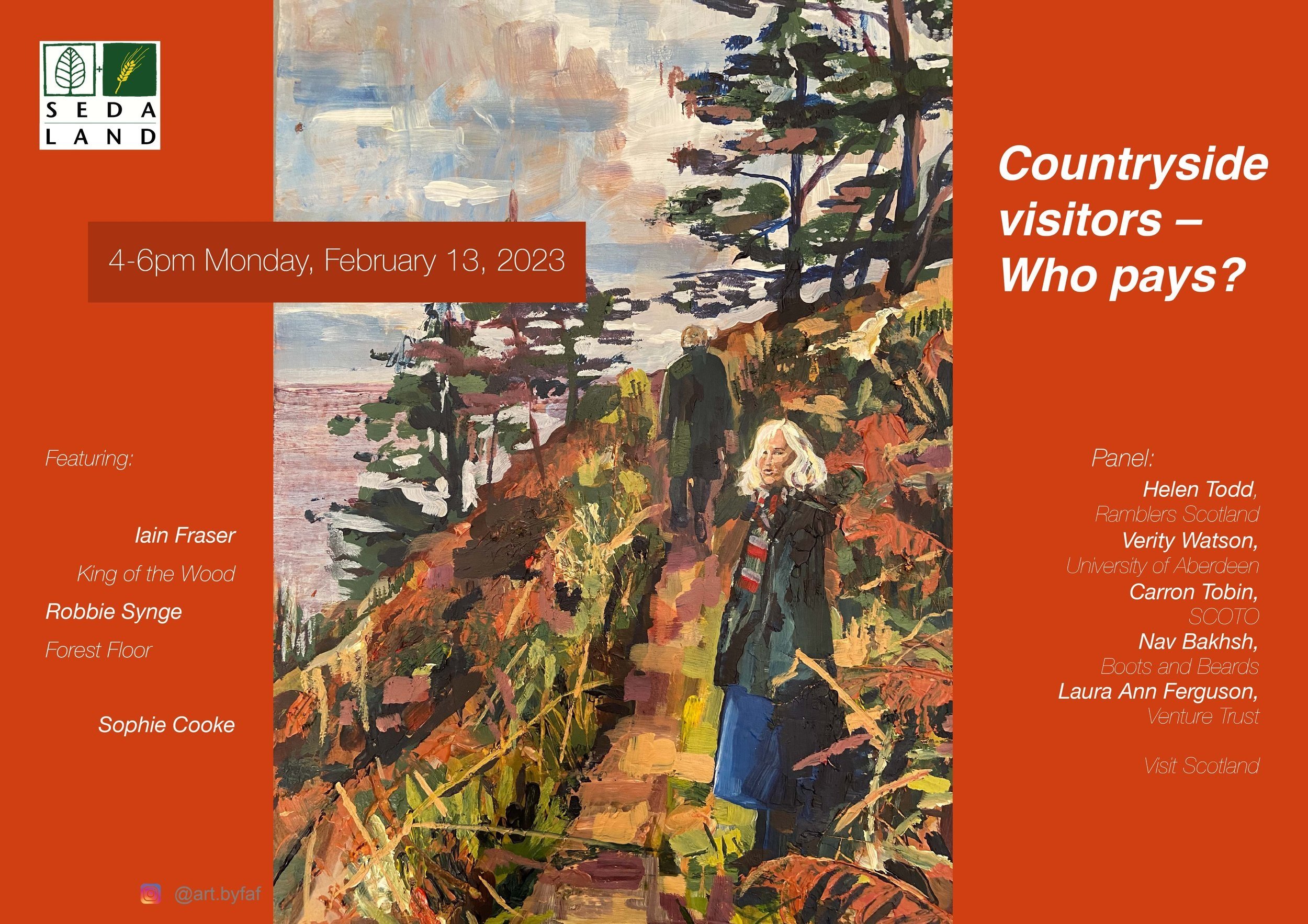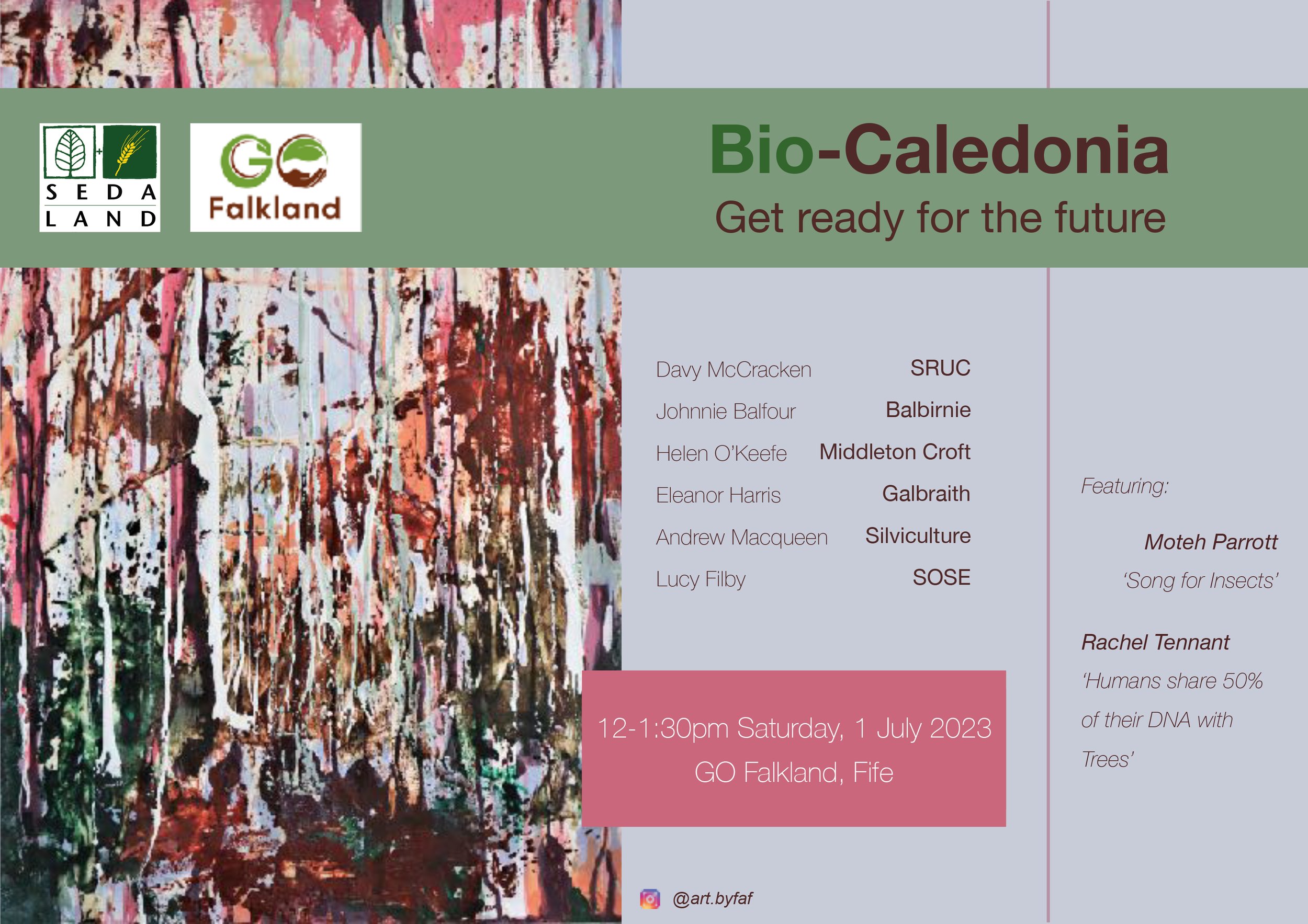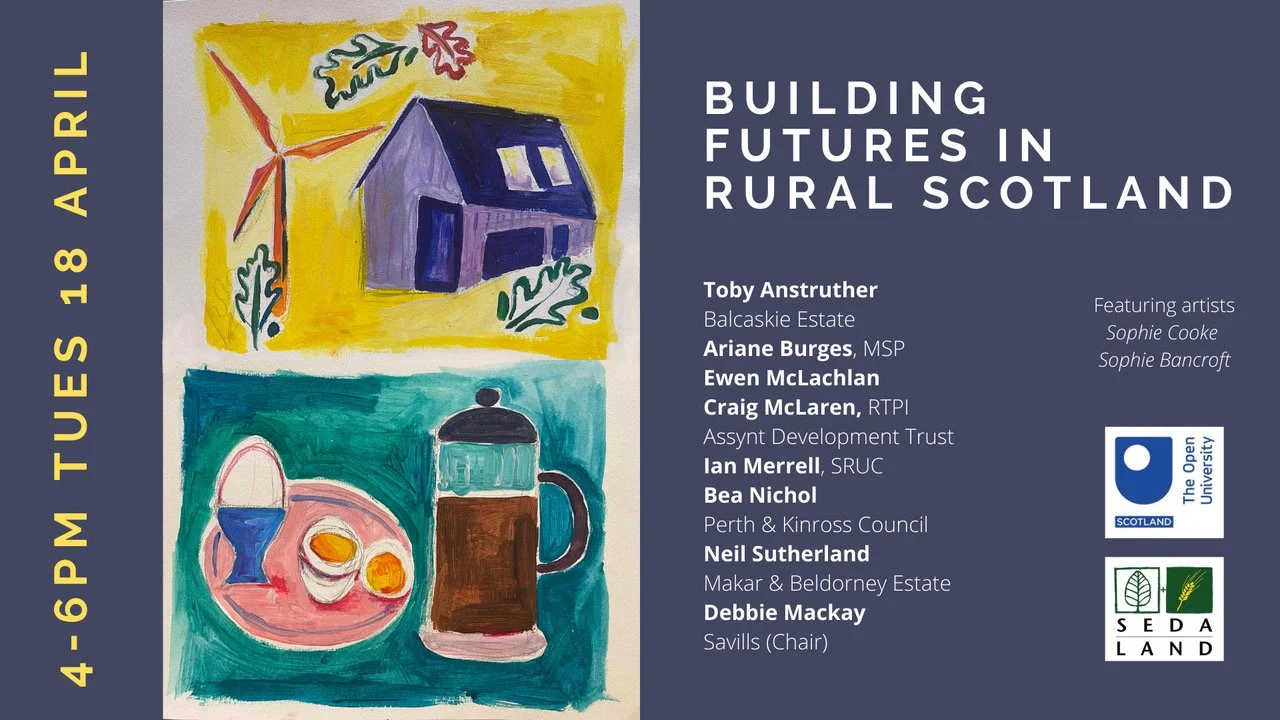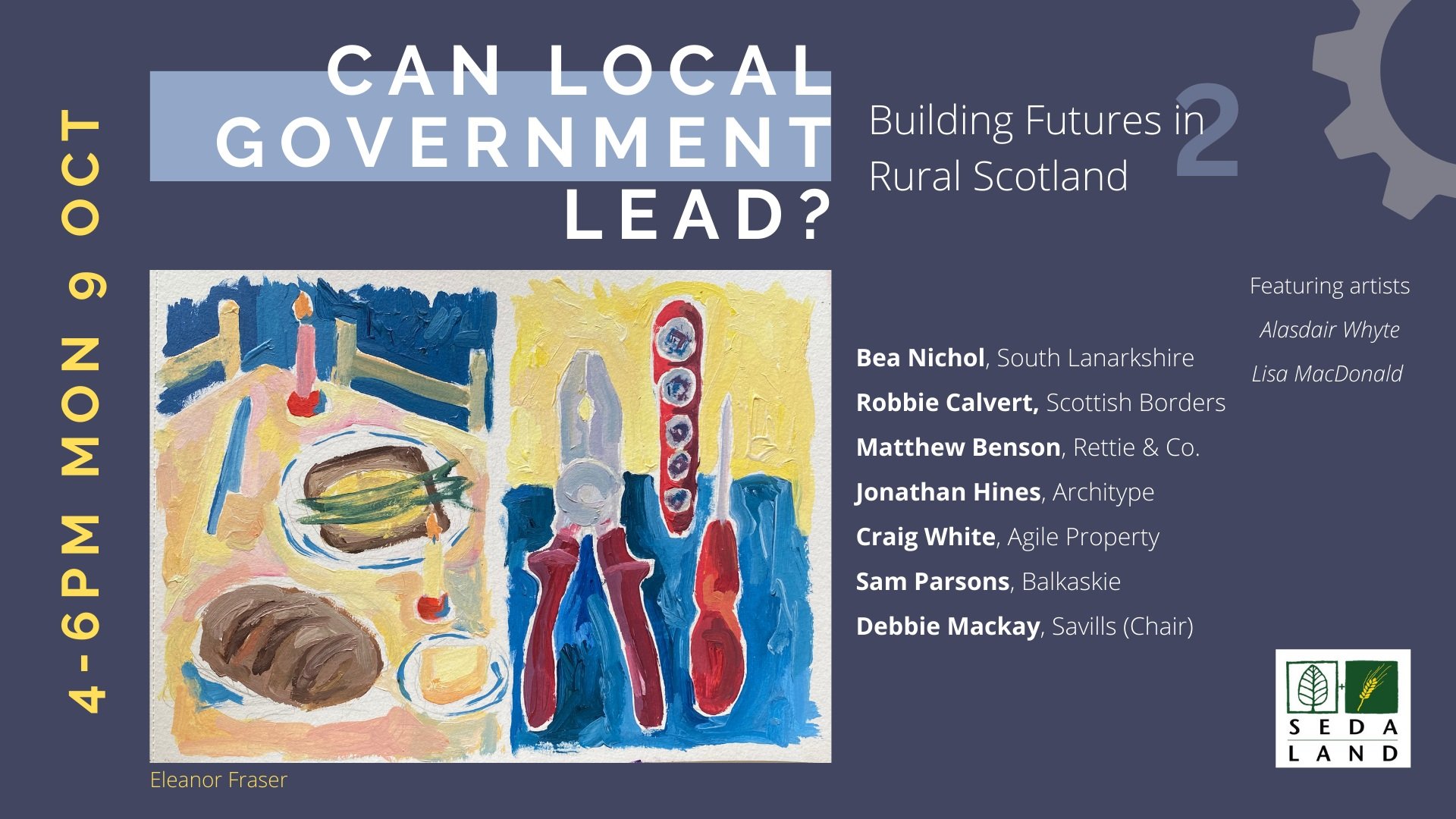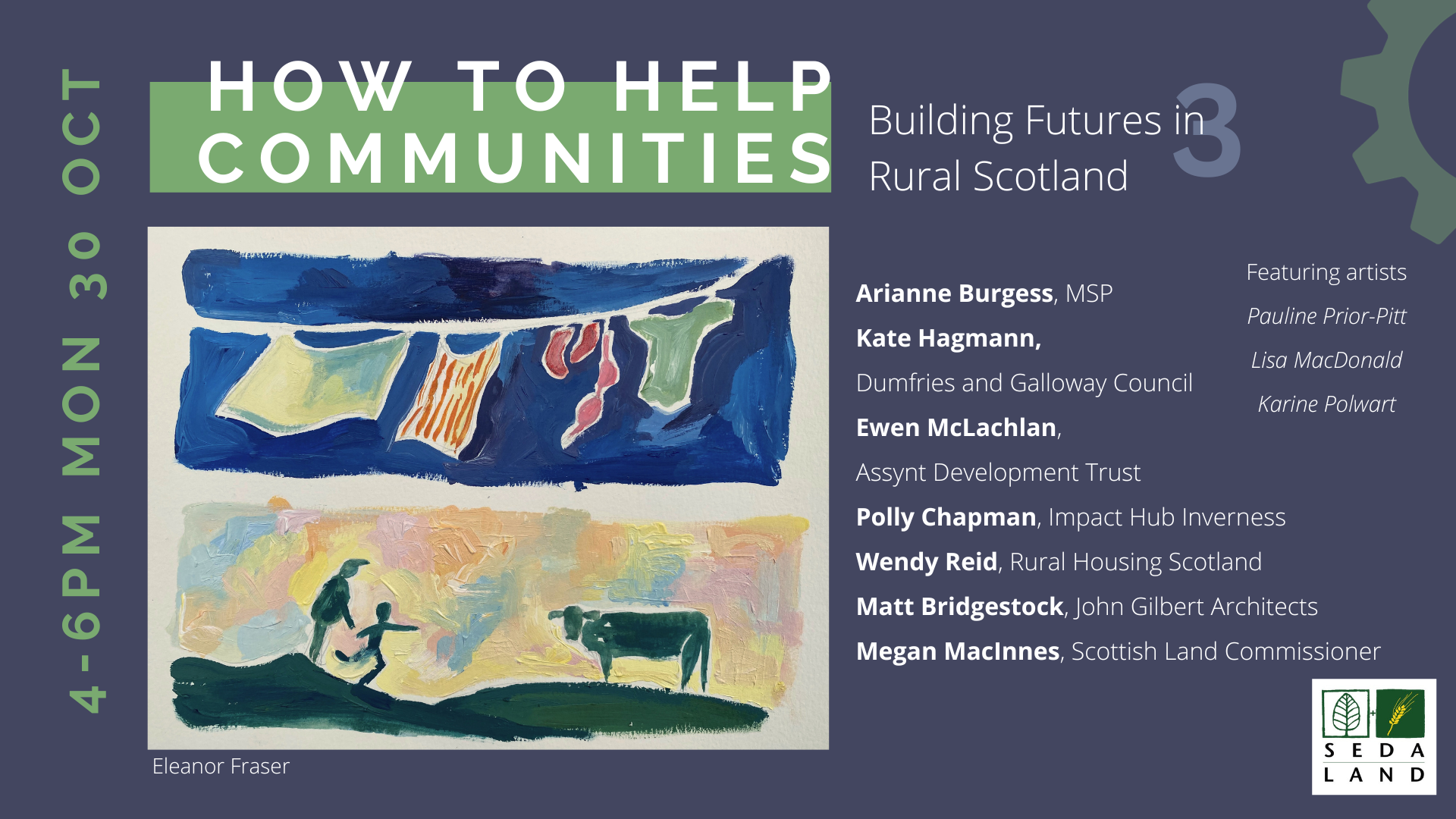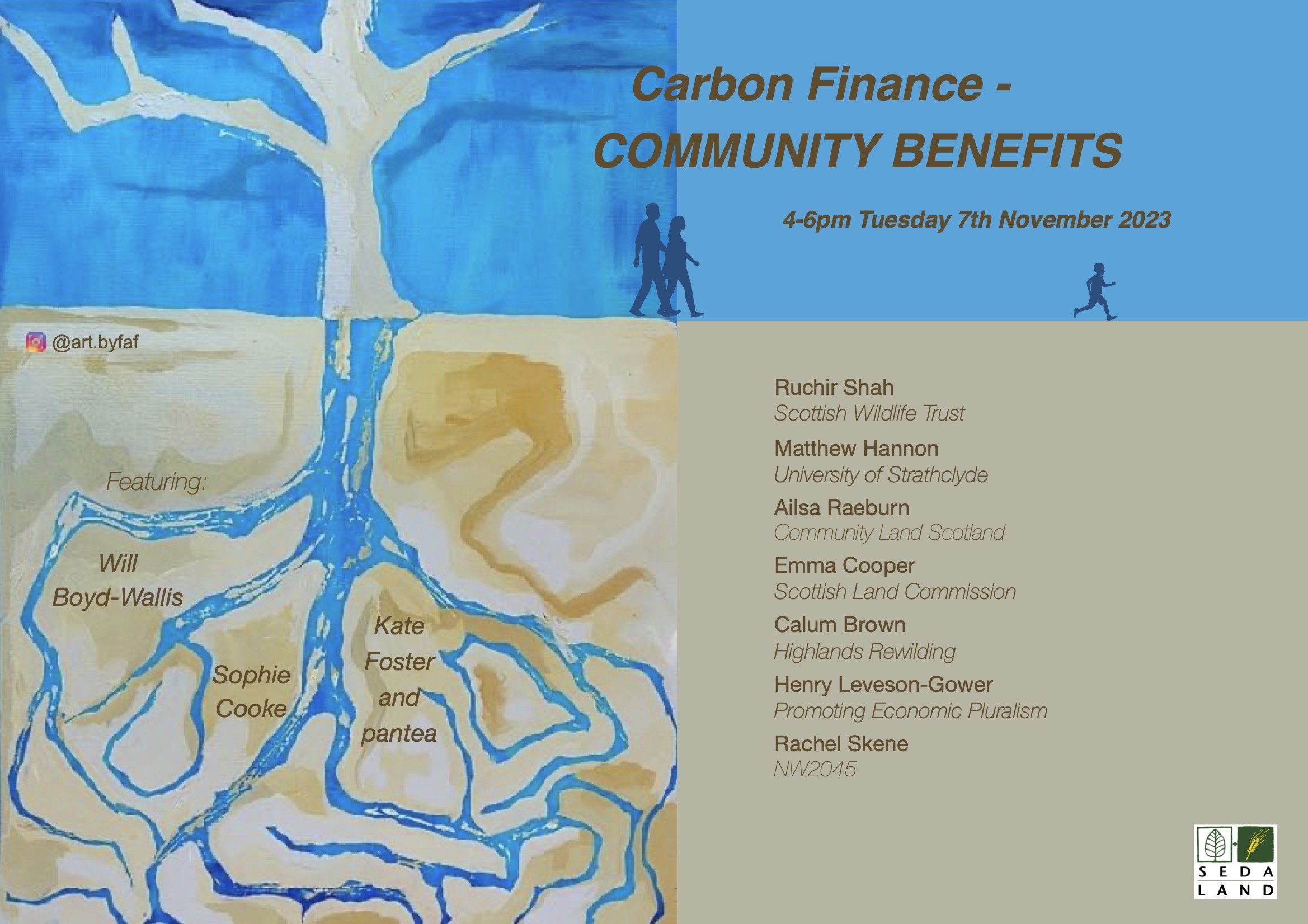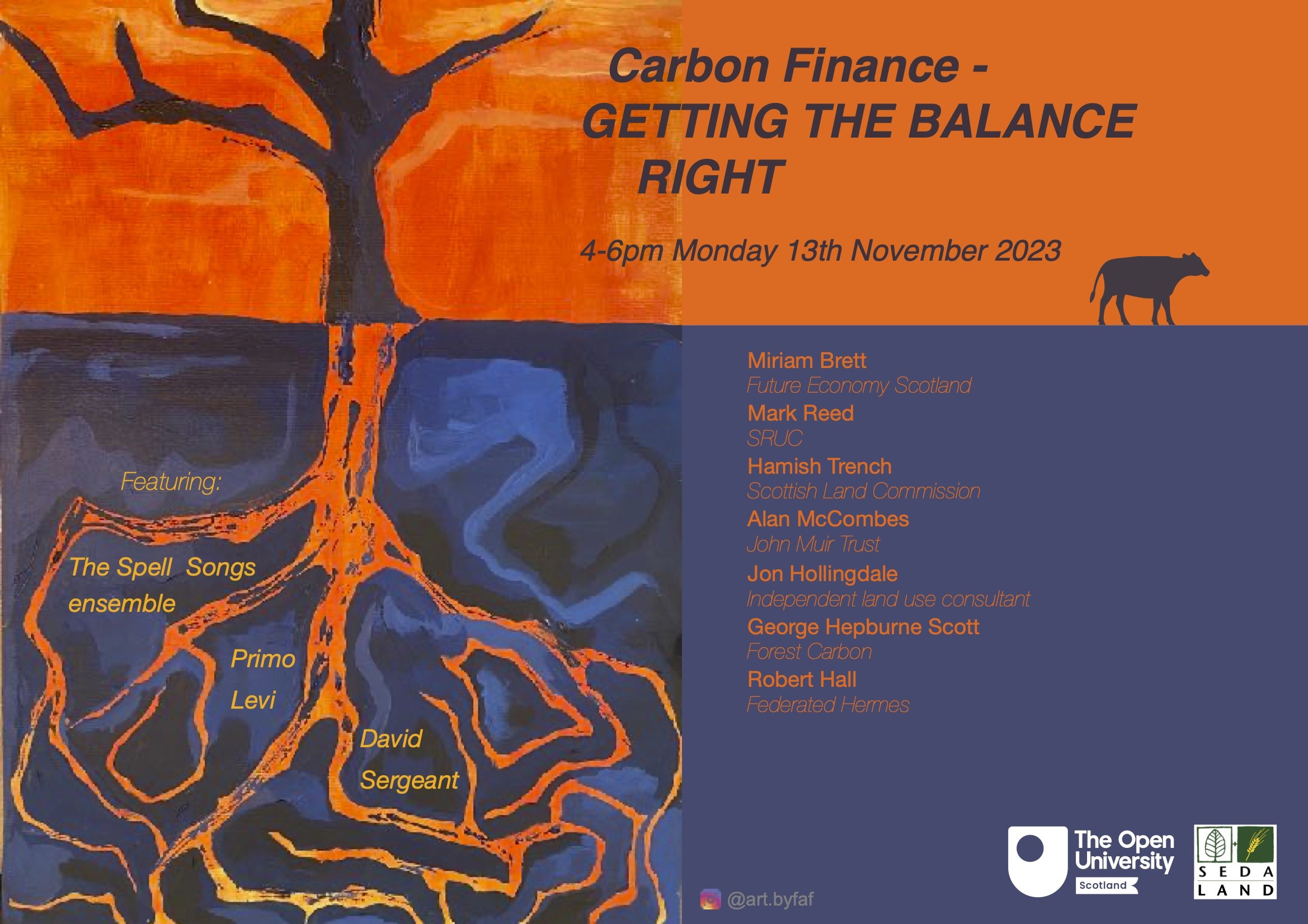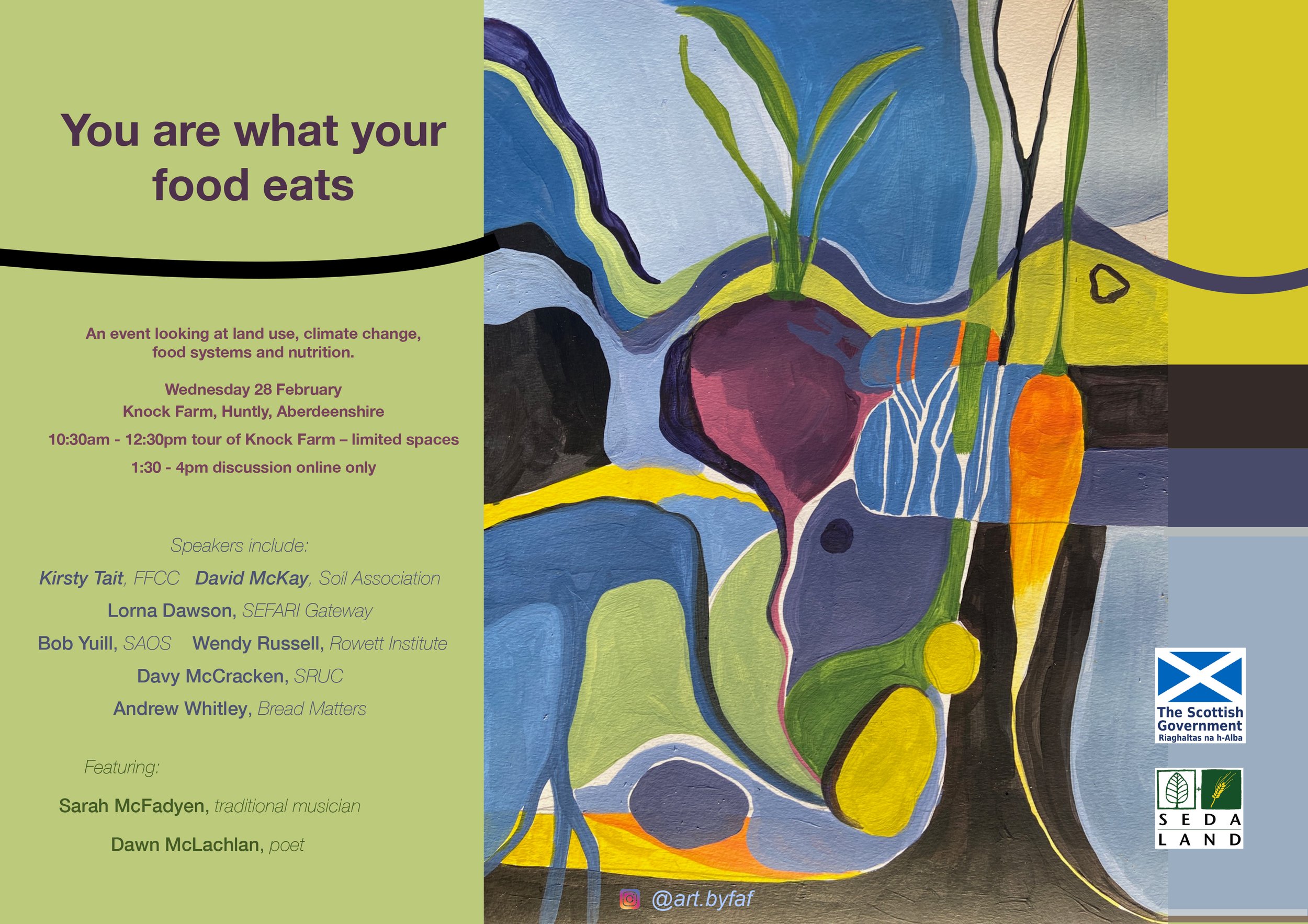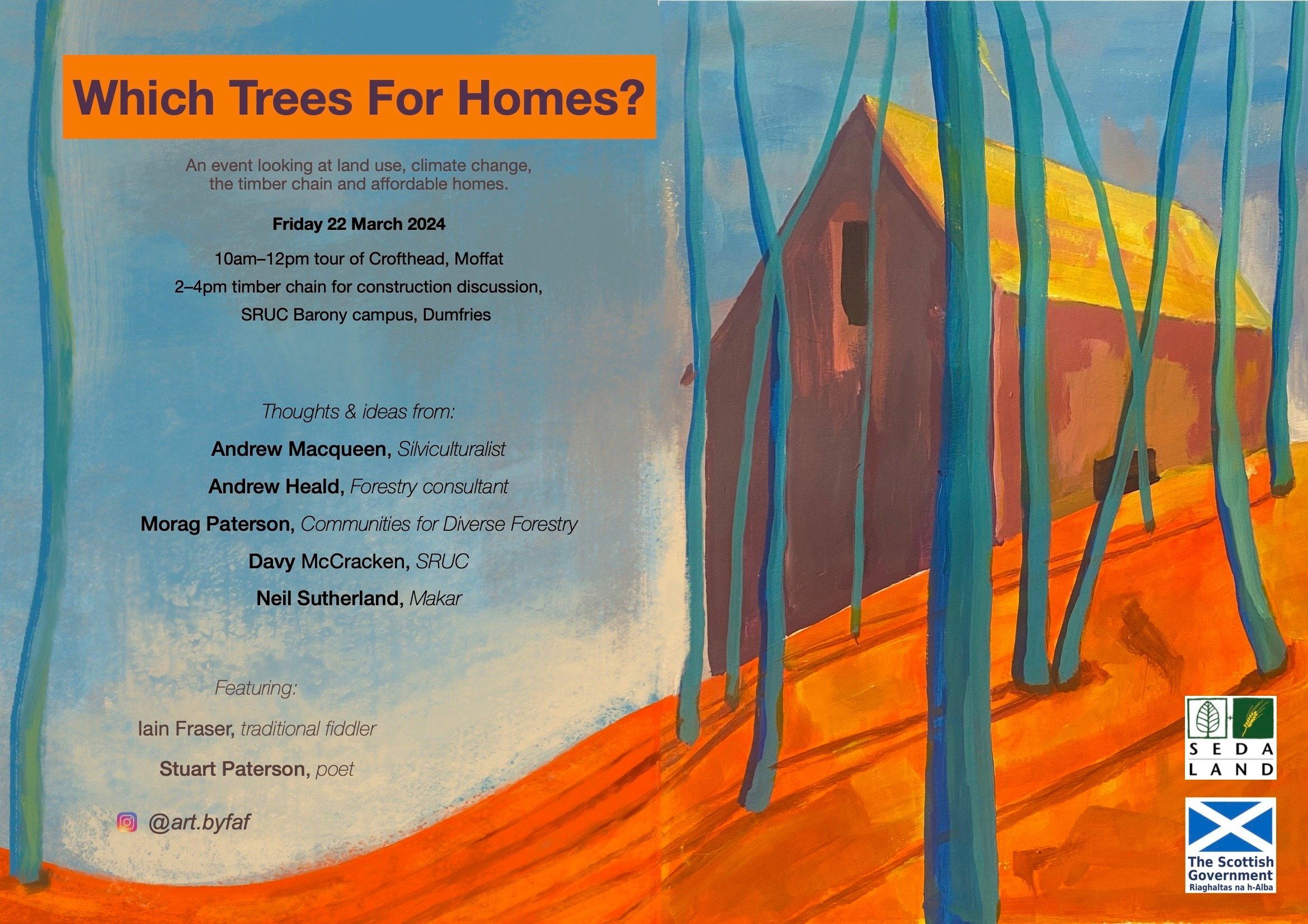A SEDA Land Conversation
CARBON FINANCE – COMMUNITY BENEFITS
Tuesday 7th November 4-6pm 2023
Nature markets are here to stay, whether we like it or not. Contrary to much current opinion, such markets, which include carbon markets, biodiversity markets, and other emerging ecosystem markets, don’t have to be negative. With the right checks and balances they can open up opportunities for communities who may feel threatened by them. This is something SEDA Land will be exploring in two events: Carbon Finance – COMMUNITY BENEFITS and GETTING THE BALANCE RIGHT.
The first conversation: 'Carbon Finance – Community Benefits’, will start by looking at communities and how they may be affected. Most people agree that communities should be better engaged and benefit more from ecosystem markets, but it is not clear how this should be done, or how local residents and communities might be compensated under a public funding model. Join us to discuss how this could be done at this event.
There are growing concerns about the impact of private investment on land prices, tenant farmers and local communities. Henry Leveson-Gower will advocate a cooperative approach as a mechanism through which multiple interests can collaborate to deliver conservation benefits at landscape scale which could benefit small rural communities, crofters or other smallholders.
We will discuss who are the greatest winners and losers are likely to be, and how might those with least power shape and benefit from these markets, as part of a just transition to net zero. Should rural communities be actively engaging in these markets, passively sharing profits from local schemes, or would they be better off without these markets at all?
Art by Flora Fraser.
PANEL
CHAIR: Ruchir Shah
Director of External Affairs, Scottish Wildlife Trust
Ruchir is responsible for leading the transformation of how the Scottish Wildlife Trust engages with external audiences in order to tackle the ecological crisis we face. This includes strategic responsibility for policy and public affairs, communications and marketing, and the Trust’s engagement with its members and the general public.
Dr Matthew Hannon
Professor of Sustainable Energy Business and Policy, University of Strathclyde
Matthew works as a Professor of Sustainable Energy Business and Policy at the Hunter Centre for Entrepreneurship, Strathclyde Business School. His research examines the business models, policies and technologies necessary to accelerate the transition to a socially equitable, net-zero economy. He has (co-)led major research projects, including the Scottish Universities Insight Institute’s Carbon Offsetting for Communities, UKRI’s £10m EnergyREV consortium on smart, locally led energy systems, as well as both the UK Energy Research Centre’s ‘Whole Person - Whole Place’ net-zero neighbourhood retrofit and Community Energy Finance projects. His work has been published across ‘Financial Times 50’ ranked journals and two books on innovation to accelerate the energy revolution. His work has also enjoyed extensive media coverage (e.g. BBC, Forbes) and he has also provided commentary for national media outlets like the i newspaper and The Conversation. Finally, he is co-founder and host of the Local Zero podcast, which champions local action to tackle climate change and profiled as the Times Pod of the Week.
Ailsa Raeburn
Chair, Community Land Scotland
Ailsa is a former Chartered Surveyor based in Argyll with many years’ experience in property development, management and regeneration. Ailsa has been involved with the Community Land Sector now for a number of years. She is Chair of the Isle of Eigg Heritage Trust. She also served as a Director on the Isle of Gigha Heritage Trust. As Head of the Community Assets Team at Highlands and Island Enterprise, she was responsible for the development and management of the Scottish Land Fund. She was also responsible for a team of advisers across Scotland who worked with community enterprises to develop and deliver transformational asset based projects. At Community Land Scotland, Ailsa has worked with colleagues to support urban and rural communities across Scotland to acquire and develop locally important land and buildings. She also supports the Team on policy development and advocacy, focusing on legislative opportunities to further transformational change for communities.
Dr Calum Brown
Co-chief Scientist, Highlands Rewilding
Dr Calum Brown is Co-chief Scientist at Highlands Rewilding, and a Senior Researcher in Land Use & Climate Change at the Karlsruhe Institute of Technology. He grew up close to Highlands Rewilding’s Bunloit estate, where he now works. He studied ecology, but his research has focused on the links between people and nature in the land system, and how these might be affected by climate change and sustainable management. He currently focuses on the benefits that can arise from ecological restoration, and their contributions to rural communities.
Emma Cooper
Head of Land Rights & Responsibilities, Scottish Land Commission
Emma Cooper is Head of Land Rights and Responsibilities at the Scottish Land Commission, a public body that takes forward land reform in Scotland. Emma works to embed responsible practice in land ownership and management, working with communities, landowners and policy-makers. Emma has been leading work to establish a reasonable expectation of community benefits from carbon projects and identifying practical ways in which carbon projects - and land more generally – can deliver a wide-range of meaningful, tailored benefits for local communities.
Henry Leveson-Gower
CEO of Promoting Economic Pluralism
Henry Leveson-Gower is founder and CEO of Promoting Economic Pluralism and Director of New Economic Knowledge Services, its consultancy arm. He works to open up thinking and action on economic organisation to different perspectives through editing and publishing The Mint Magazine and supporting innovative action on the ground. He is working with a range of landscape regeneration projects to support innovative collaborative multi-stakeholder approaches that gain private funding while also being adaptive over the long term to changing science, policy and circumstances. This approach developed from his time as a research fellow at the Centre for Evaluating Complexity Across the Nexus at the University of Surrey in 2017, where he worked with leading experts to explore emerging social and institutional models for landscape management. He has a wealth of experience as an economist and policy analyst seeking practical solutions to address complex and uncertain challenges in environmental policy particularly in the food and land sectors. He is a Fellow of the RSA and a qualified chartered accountant.
Rachel Skene
Manager, NW2045 Regional Land Use Partnership
Rachel returned to third- sector working, after 10 years in the public sector with HIE, in January 2022 when she took up the opportunity presented by Northwest2045. NW2045 is a place-based collective of third, private and public sector people who collaborate to support delivery of the community generated NW2045 Vision VISION | NORTHWEST2045 .
NW2045 is contributing to the Scottish Governments ambition to see greater agency develop at a regional and local level. This is happening by being ‘home’ to one of the Regional Land Use Partnership Pilots (RLUP) currently being tested in Scotland. Rachel is part of the team delivering this project, exploring how land is the ‘common’ ground from which to support communication, from where encourage collaboration and (hopefully) induce nature and community positive impacts.
Within this, Rachel has sought to support place- based, community led action and research; to distribute available resources within the community so proactively and demonstrably valuing the skills, time and expertise that is already available- when communities have capacity to capitalise on this. This is being achieved by investing in communities to co-lead: to do the work collaboratively, ground- up. This is a fundamental tenet of the Land + team and one they hope to continue to develop and embed. The resource from the RLUP pilot is critical in achieving this.
The team are happy to hear from anyone who might like to share what they are doing relevant to this, and to reciprocate with insights into their work.
artistic contributions
Kate Foster and pantea
Mending the Blanket
This was the first production of an Iranian – Scottish collaboration between pantea, who created the film and soundtrack, and Kate Foster’s images and texts. The film describes the peatbog restoration work at Gameshope, Southern Uplands, by Tweed Forum on behalf of Borders Forest Trust.
Will Boyd-Wallis
Hot Air
Will Boyd-Wallis is the West Highlands Operations Manager for the National Trust for Scotland. He began his career as an ecologist and has worked in land management, conservation and community development in the Highlands and Islands for over 25 years. He is also a musician (also known as Greenshanks) and will share his recent song Hot Air. The song was triggered by frustration at continued greenwashing and the watering down of commitments to tackling climate change and biodiversity loss.
Sophie Cooke
Tangled Webs
Sophie is a poet, novelist, and short story writer. She produces filmpoems on environmental and social themes. Her broader poetry covers issues ranging from mythology to genetics. She won the Genomics Forum Poetry Prize and is published in various magazines. Sophie’s novels are set in rural Scotland. Her short stories (including for BBC Radio) are contemporary and historical. She grew up in the Trossachs and now lives in Edinburgh, where she is involved in helping care for local green space. She teaches creative writing with the Open University. She is a regular contributor to SEDA Land events.
Tangled Webs was commissioned for this event sponsored by the Open University Scotland.




